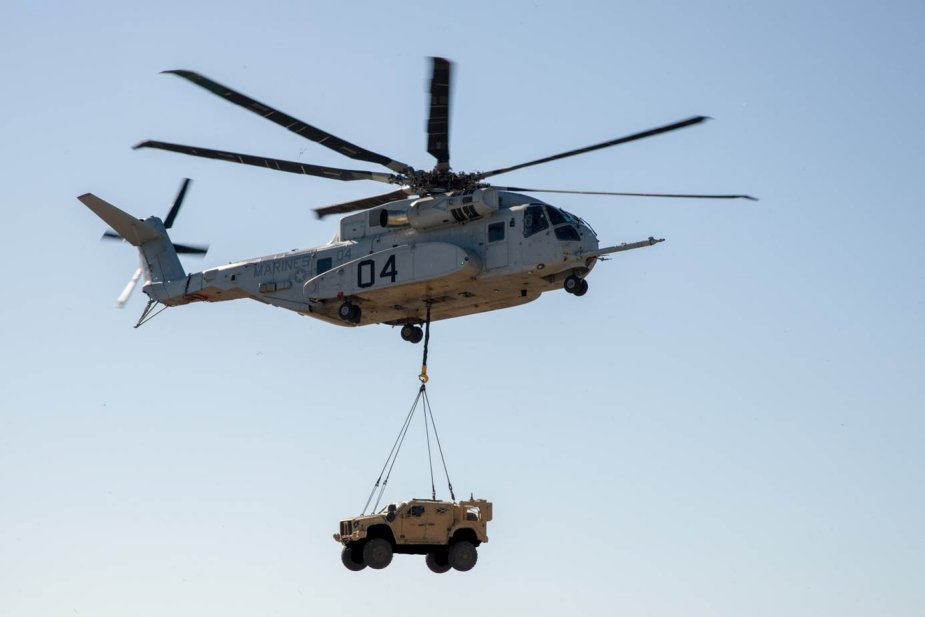Breaking news
USMC CH-53K successfully demonstrates JLTV vehicle lift.
The USMC CH-53K King Stallion successfully lifted (and set down) a Joint Light Tactical Vehicle (JLTV) during a demonstration, Jan. 18, the Naval Air Systems Command said on February 6. Using the single point hook, the helicopter hovered up to 100 feet for approximately 10 minutes while carrying the 18,870-pound vehicle.
 A CH-53K King Stallion lifts a Joint Light Tactical Vehicle during a demonstration, Jan. 18.
A CH-53K King Stallion lifts a Joint Light Tactical Vehicle during a demonstration, Jan. 18.
(Credit: U.S. Navy)
“This was a first-of-its-kind event for both the CH-53K and JLTV programs,” said U.S. Marine Corps Col. Hank Vanderborght, program manager for the H-53 Heavy Lift Helicopters program office, PMA-261. “Watching these two high priority programs come together on the flight line was an exceptional sight.”
The JLTV family of vehicles are the Army and Marine Corps’ replacement for the High Mobility Multipurpose Wheeled Vehicle (HMMWV) and the CH-53K is replacing its predecessor, the CH-53E Super Stallion. The specific JLTV used for the demonstration was the four-seat model, known as the Combat Tactical Vehicle.
Prior to using the JLTV, the program tested various external payloads on the CH-53K using representative concrete slabs, up to 27,000 pounds. This year, the test team will expand that external weight envelope up to 36,000 pounds.
“The payload capability of this helicopter is unmatched, triple that of its predecessor and better than any other heavy lift helicopter in production,” said Vanderborght.
The demonstration was a collaborative effort among the CH-53K Integrated Test Team (Sikorsky, NAVAIR and Air Test and Evaluation Squadron (HX) 21), the NAVAIR Internal Cargo Lab and PMA-261.
In addition, the Helicopter Support Team from Combat Logistics Battalion (CLB) 25 traveled to NAS Patuxent River to support the demonstration, providing key ground support in the hook of the JLTV to the aircraft. It was the first time this unit had an opportunity to support both platforms.
“The biggest thing my unit noticed was the stability of it,” said Cpl. Ronald Fritter, CLB-25. “Safety is paramount while underneath the bird because you have so many variables with the down wash of the aircraft to the hook … with the hook not moving around at all, little to none, it makes our jobs easier.”
There are four Engineering Development and Manufacturing Model aircraft and a Ground Test Vehicle in test. In addition, a sixth aircraft, known as a System Demonstration Test Article, joined the test program this month. To date, the program has logged more than 700 cumulative flight hours.



















